- Soma Mater's Newsletter
- Posts
- SOMA Newsletter
SOMA Newsletter
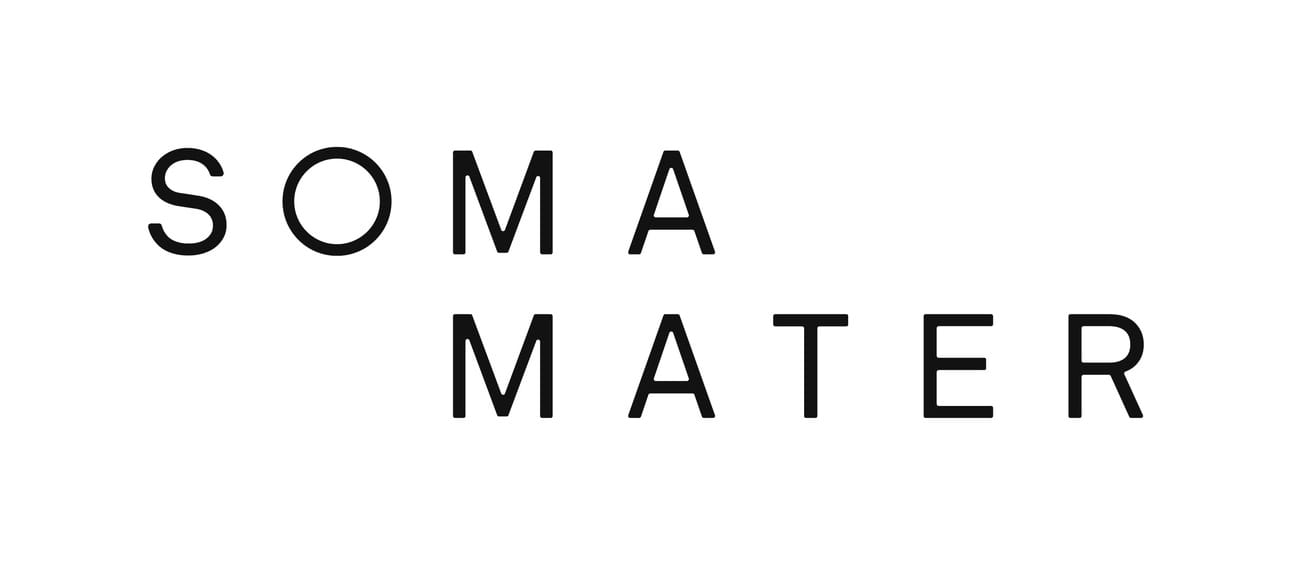
Welcome to the SOMA MATER weekly newsletter.
At SOMA MATER, we specialize in delivering comprehensive research and advisory services with a focus on Food & Water Security and Net Zero Transition in the MENA Region. In order to support our subscribing clients in navigating these topics and understanding the regional narrative, we produce monthly Food and Water Security and Net Zero Transition Intelligence Reports, along with our in-depth analysis and insights.
This weekly newsletter highlights the top 3 stories from the past week in Food and Water Security and Net Zero transition, along with SOMA MATER's analysis and perspective.
How are Saudi Arabia and Egypt strengthening their economic partnership through new investments and agreements in 2025?
How is Dubai recently addressing its stormwater management challenges through the Tasreef project?
How is the organic fertilizer industry evolving in Ras Al Khaimah (and across the region)?
Sustainably yours,
The SOMA team
Two Kings of MENA: When Cairo Meets Riyadh
#NetZeroTransition #FoodandWaterSecurity
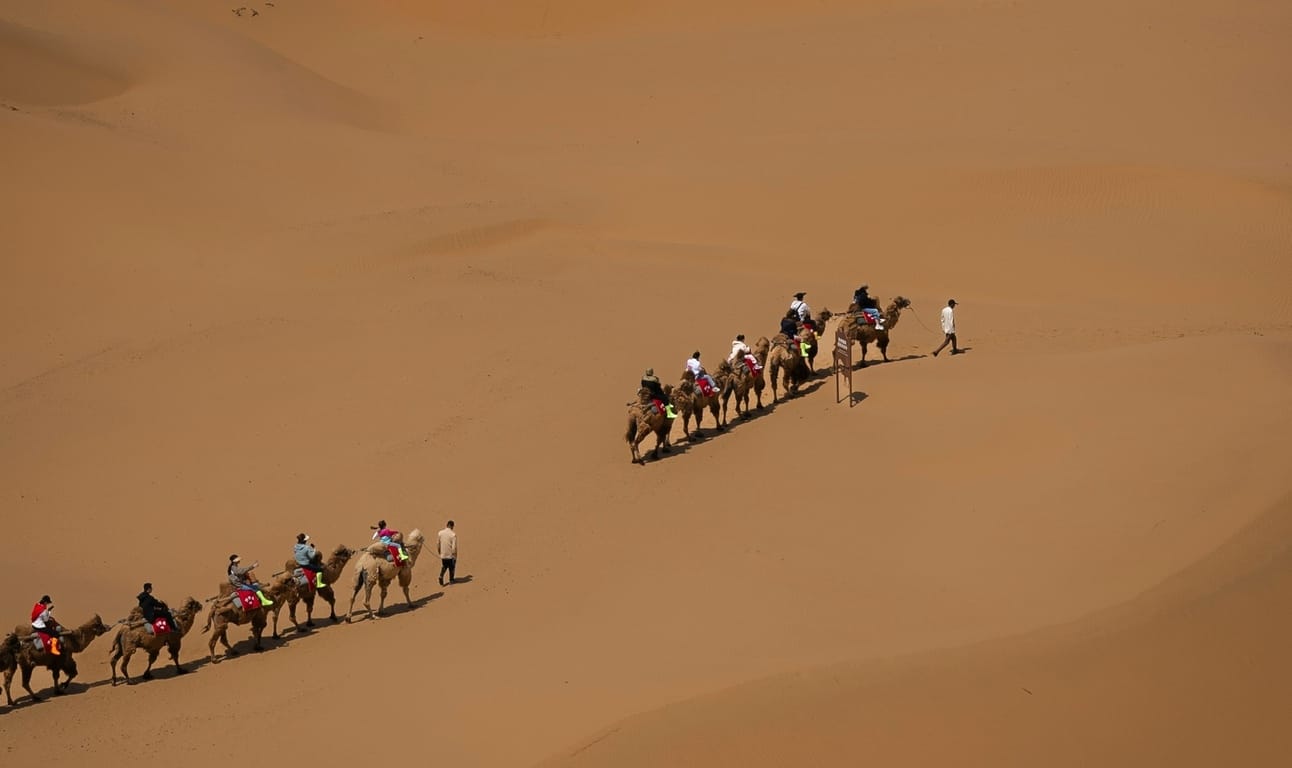
Saudi Arabia and Egypt have deepened economic ties during an investment forum in Cairo aimed at unlocking $30 billion in opportunities. This agreement, part of the Saudi-Egyptian Supreme Coordination Council's work, covers crucial aspects including capital security, technology transfer, and human resource development.
The economic integration between the countries is already substantial, with over 7,200 Saudi companies operating in Egypt with investments exceeding $35 billion, and more than 5,000 Egyptian companies active in Saudi Arabia. The trade exchange reached $16.2 billion in 2024, marking a 29% increase. Egyptian exports to Saudi grew in the last 5 years at an annualized rate of 25.8%, with both countries' top export being Refined Petroleum. The partnership is now further strengthened by 4 new agreements covering various sectors including food industries, solar energy, metal industries, and real estate development.
These agreements include a memorandum of understanding between Business City Group and GCC Capital Partners Saudi Arabia focusing on sectors such as poultry production, agriculture, and food processing, while another agreement in the energy sector between Nanovolt and Al-Yusr Leasing and Finance Company aims to collaborate on solar panel installations across both countries. Egypt has also implemented various reforms to attract investors, with Saudi Arabia currently ranking as the third-largest investor in Egypt.
SOMA’s Perspective:
With the ever-increasing challenges posed by climate change, food security, and energy transition, SOMA believes regional cooperation like this one will become increasingly crucial. The deepening of ties between Egypt and Saudi Arabia, particularly in sectors of interest such as food industries, agriculture, and solar energy, represents a positive shift towards meaningful inter-regional collaboration in areas critical for the MENA region's sustainable future.
Sources:
Making it Rain: Dubai's AED30Billion Answer to April Showers
#FoodandWaterSecurity
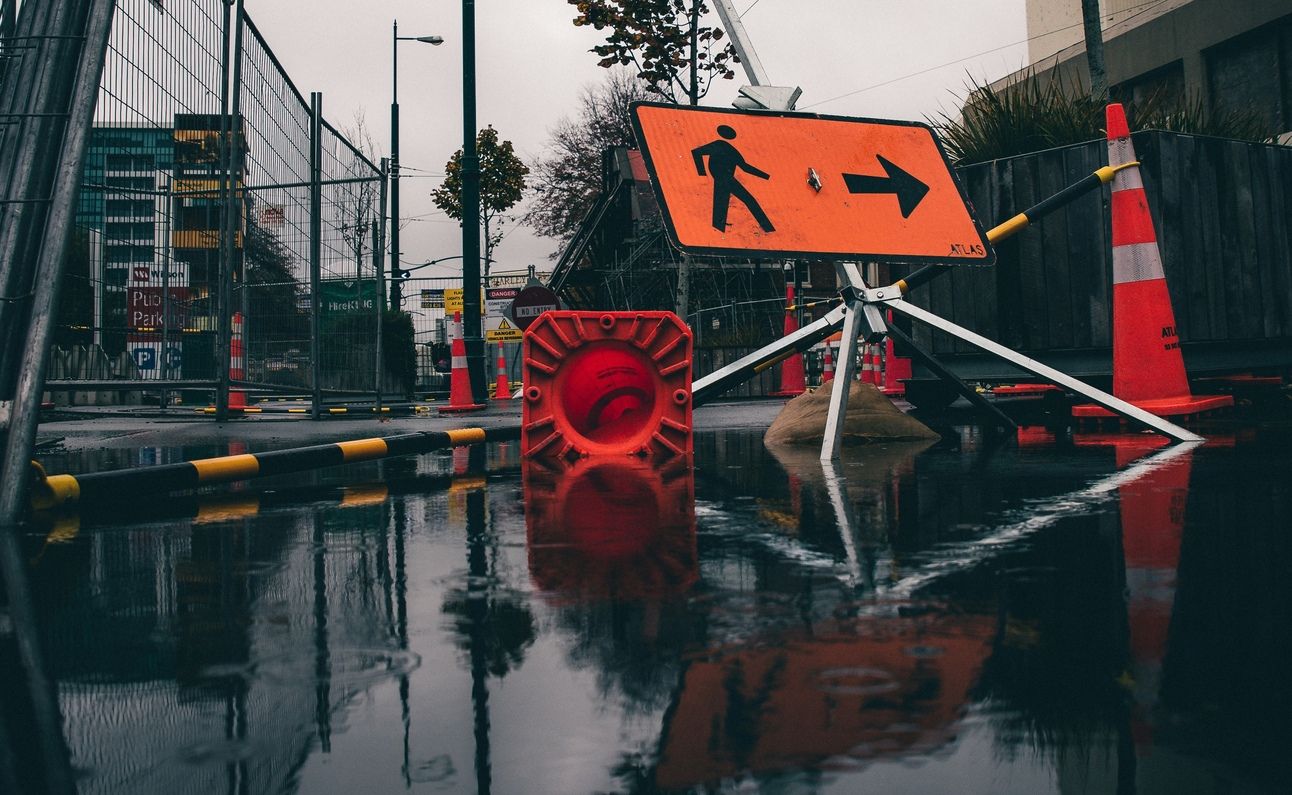
Dubai Municipality has unveiled the awarding of AED1.439 billion in contracts for 4 projects under the 'Tasreef' project, which is aimed at enhancing the emirate's stormwater drainage network and was announced in 2024. This comprehensive development will cover key areas including Nad Al Hamar, Dubai International Airport vicinity, Al Garhoud, Al Rashidiya, Al Quoz, Zabeel, Al Wasl, Jumeirah, and Al Badaa.
The project's scope includes the construction of more than 36km of new drainage lines connecting to the main Tasreef tunnel, significantly increasing the network's drainage capacity while reducing operational and maintenance costs. With an estimated total cost of AED30 billion, the Tasreef project stands as Dubai's largest infrastructure initiative of its kind, designed to be scalable over the next century and aiming to increase discharge capacity by 700% over the next 100 years.
This infrastructure announcement comes at the one year mark since the significant rainfall events of April 2024 in the UAE. The rains had an impact on the real estate market, with some communities experiencing a temporary dip in buyer interest due to flooding concerns. This has led to increased awareness of flood-resistant features and renewed focus on sustainable urban planning in new developments.
SOMA’s Perspective:
SOMA observes that Dubai's investment in stormwater management infrastructure demonstrates how MENA cities are being forced to adapt their infrastructure to handle more frequent and intense climate events. This adaptation is particularly crucial in the Gulf region, where rapid urbanization meets increasingly unpredictable weather patterns. The 2024 rainfall events served as a wake-up call, highlighting the need to climate-proof future developments. This investment in climate resilience is no longer optional but a fundamental requirement for sustainable urban development in the region.
Sources:
https://www.khaleejtimes.com/business/infrastructure/dubai-municipality-stormwater-drainage-contracts-tasreef-project?__sta=vhg.blmsvsvhqxgv|IFFVJUI&__stm_medium=email&__stm_source=smartech&utm_campaign=Daily Newsletter&utm_content=&utm_medium=Email&utm_source=Netcore
The Soil Whisperers: RAK's New Fertilizer Revolution
#FoodandWaterSecurity
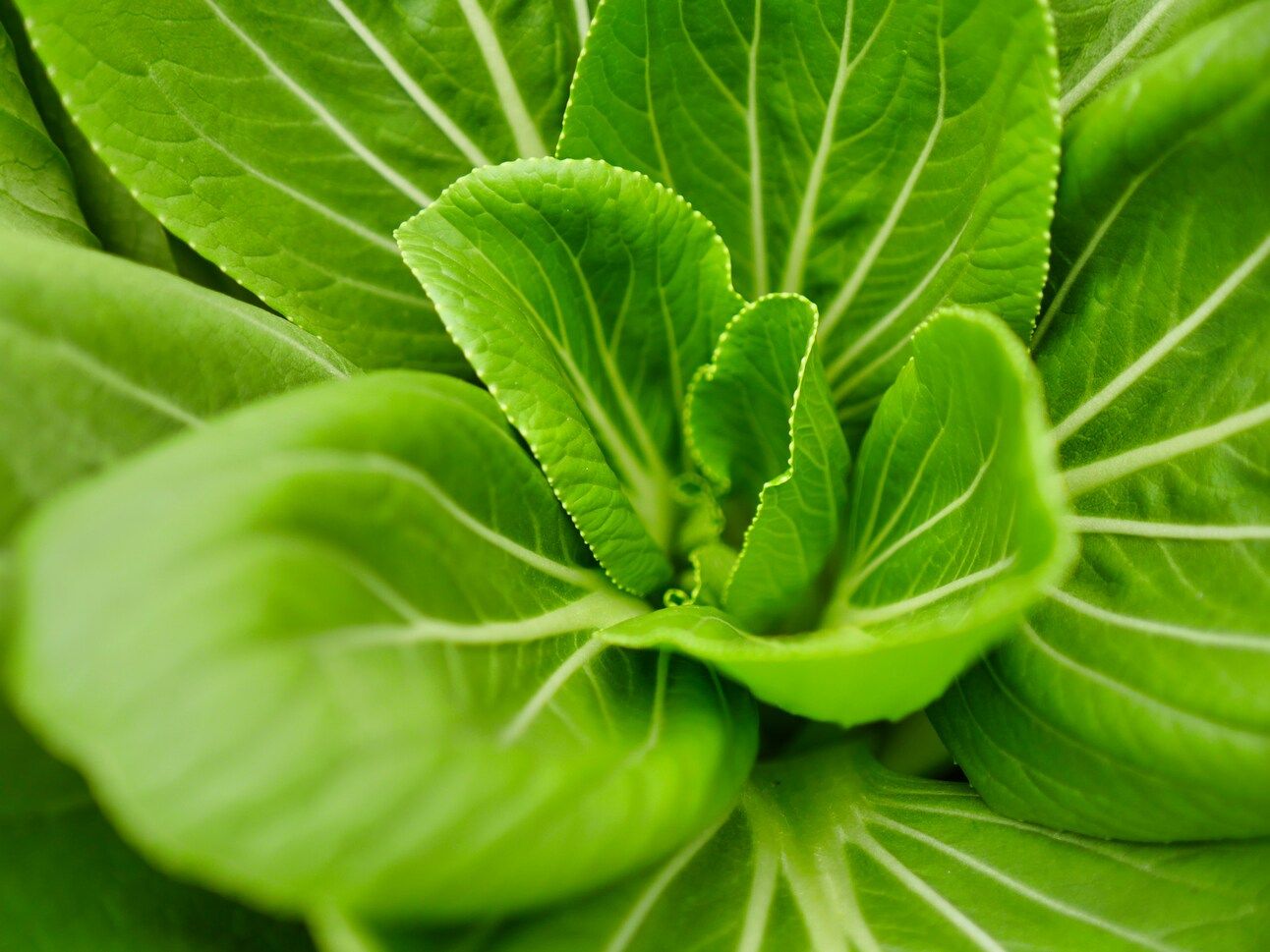
Uterra Middle East Agro Industries has marked a milestone in Ras Al Khaimah's agricultural sector with the inauguration of the Emirate’s first organic fertilizer facility, representing a $20 million investment. The 33,000 m2 facility employs organic production processes and technology for both indoor and outdoor farming, including vertical farming techniques for year-round fresh produce cultivation.
The facility's innovative uTerra organic fertilizer and biohumus production, which began in 2023, now exceeds 1,000 tons annually. Their fertility elixir has increased yields by 30-120%, while enhancing crop growth, fruit quality, and soil health through its comprehensive blend of nutrients and beneficial microorganisms.
This marks another step in the MENA region's transition to sustainable agriculture. Organic fertilizers provide benefits like improved soil biota, fertility, and crop yields, yet their widespread adoption is hindered by challenges such as expertise gaps and agricultural system constraints. Success depends on soil characteristics, climate conditions, and application methods, and research indicates that a combination of organic and chemical fertilizers can yield optimal results in certain conditions. Research in this field remains in its early stages across the region. A 2021 Scopus analysis of 'organic fertilizers' found 517 MENA region articles and reviews in agricultural sciences (2017-2021), compared to 6,558 worldwide (Figure 1). Iran, Iraq, Egypt and Turkey contributed 92% of these publications. Among MENA studies, only 20% covered environmental sciences, with just 5 addressing water-related issues. None explored climate adaptation or mitigation.
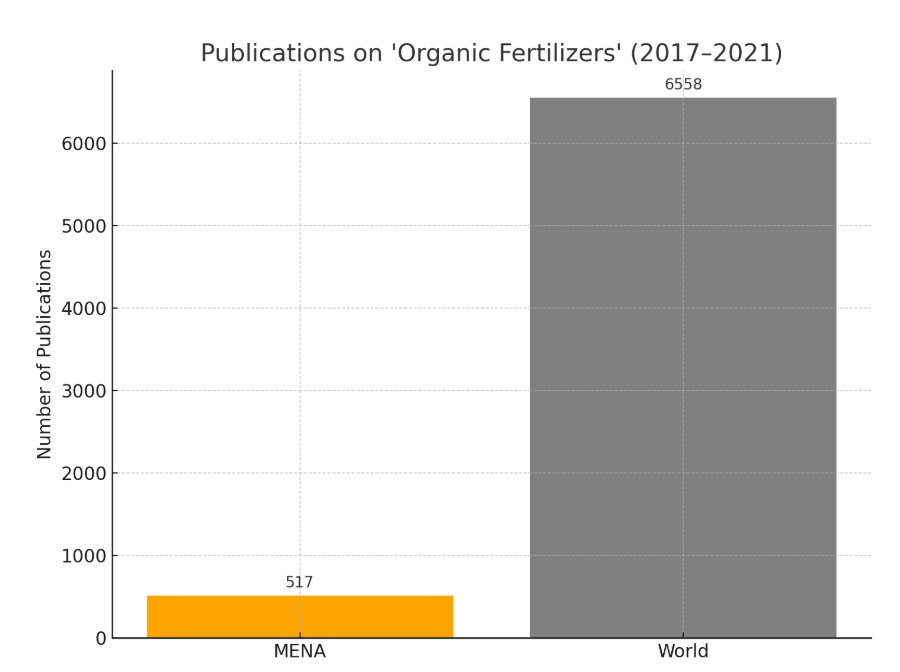
Figure 1
SOMA’s Perspective:
The establishment of local organic fertilizer facilities, like the one in RAK, demonstrates the UAE's commitment to reducing dependency on international markets while promoting sustainable farming practices. While organic fertilizers alone cannot solve all agricultural challenges, such initiatives, combined with other sustainable practices and infrastructure developments, are essential to building regional resilience in food production. This is particularly crucial as global tensions and climate events continue to impact international food supply chains, making local production capabilities increasingly valuable for long-term food security.
Sources:
SOMA MATER is writing Intelligence Reports on the topics of Food and Water Security and Net Zero Transition. If you’d like to know more, contact us through the link below: